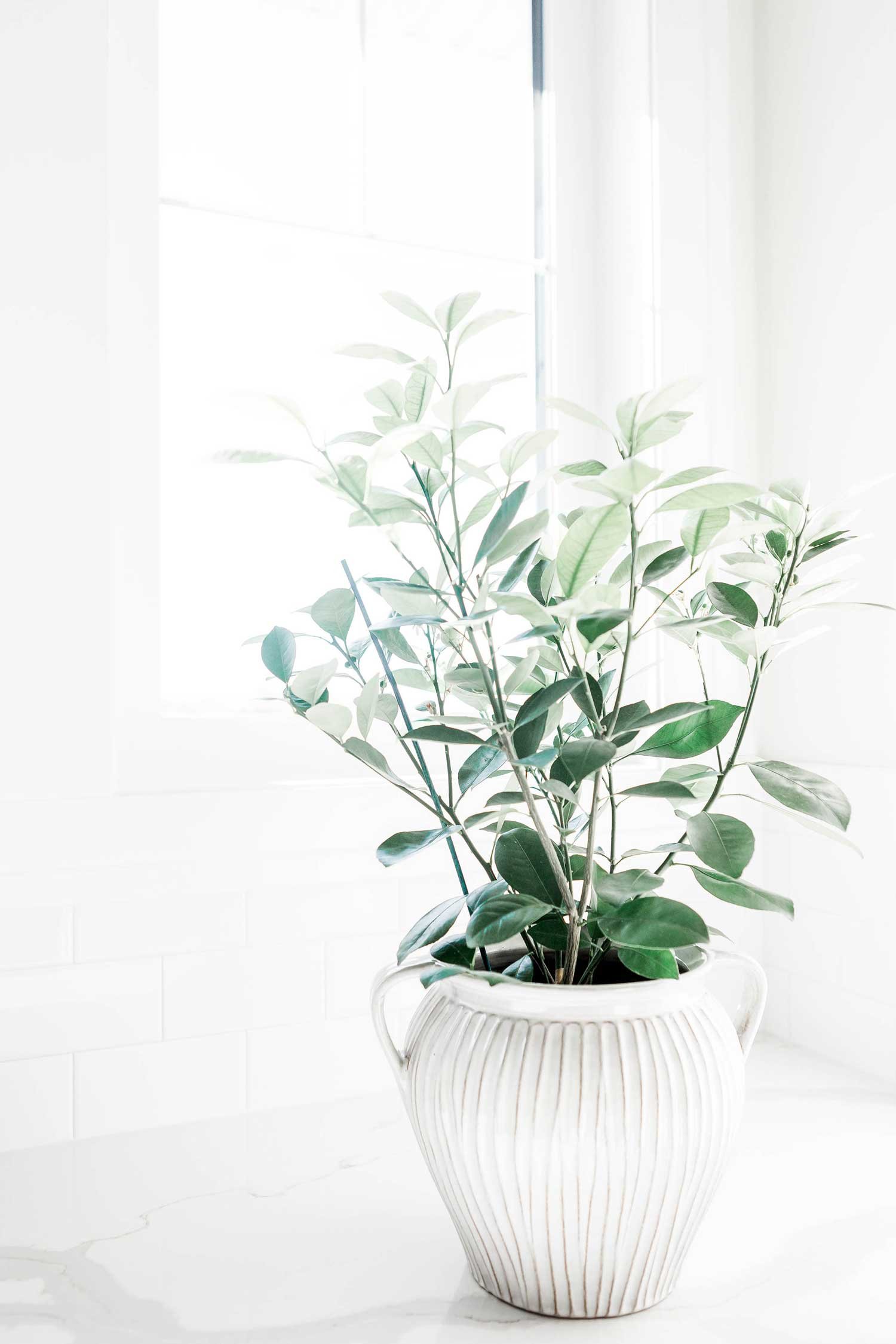[ad_1]

The Benefits Of Minimalism
Based on what we’ve discussed so far, it’s pretty obvious, that the benefits of minimalism aren’t merely more physical space in your home but the benefits are actually much deeper rooted in who we become and how we see ourselves in the world we live in.
Let’s take a look…
Clarity In Values
We’ve talked a lot about how clutter affects our home, our life, and our mind but minimalism begins to provide clarity in what we want in our lives. It helps to establish priorities for what we find important. And that clarity in our values gives us peace of mind.
Peace of mind that we’re not getting rid of things we actually care about. Peace of mind that the people we care about know we’re there for them. And the peace of mind that we’re living life on our terms — not dictated by an algorithm in our news feed.
Psst… checkout Core Values And Home.
Focus
If the first benefit of minimalism is clarity then a pair to that is without a doubt is focus. The two are almost synonymous these days but what clarity does is identify or highlight something that is important to us. But focus on the other hand ensures we match our clarity with effort towards those things.
Ultimately, what you’ll discover is that minimalism places a focus on experiences and doing things rather than stuff.
If you’re jiving with this concept of focusing on experiences, not stuff, then you should definitely check out our blog: furniture disposal and a culture of waste.
Reduced Stress
When our homes (or frankly, our lives) don’t match up with who we hope them to be it can cause us to feel ashamed, embarrassed, and stressed. In fact, it’s odd how persuasive what we see on TV or read online can be in changing our level of contentment.
By reducing what we own and even what we do with our time, you end up living with a more conscientious purpose.
Less Stuff = More Space = Less Clutter
Alright, less stuff simply means there’s more space which is definitely a benefit of minimalism. However, more space isn’t merely the only goal for living a minimalist lifestyle.
Remember the definition from Wikipedia was about reducing elements. In this case, those elements are the clutter. When we have disorganization (a la clutter) our minds are excessively stimulated but when we have less stuff and more space, we’ve effectively made room for the things we end up holding onto.
Decluttering your home (or life) is about creating systems that work for the way you live (including your loved ones) and getting organized so you can manage the lil clutter that happens daily.
Cleaning Is Easier
It should probably go without saying, but let’s ensure it’s outlined anyway, that minimalism leads to easier cleaning. Now, whether that cleaning is for you personally just before company comes over or more regularly for your housecleaner when you own less — the house is easier to clean.
Meaningful Belongings
One aspect that often gets overlooked when discussing minimalism is that the things that are kept actually have meaning to you. And what I mean by that is as an interior designer, when your belongings have meaning — they tell a story.
Your story, your family’s story or someone else’s story that you want to remind people about and share with guests. Home should be designed around an emotion + the things held dear to you (that you keep) should help convey what’s meaningful to you.
Better Time
Keep in mind, minimalism isn’t simply about reducing the stuff you own. It’s also about analyzing how you spend your time. Truthfully, being intentional about how you spend your time doesn’t give you more time as we all have 24-hours in a day.
What minimalism does for your time is provides you the opportunity to spend your time in a better way; in more meaningful ways.
Gratitude
Call me crazy, but a foundational and unspoken benefit of minimalism is gratitude. As John + I have built Elegant Simplicity, we’ve spent so much time in our lives dreaming about the future, setting goals for what we want, and racing to achieve them. All in an effort to dream bigger, set better goals + yep, yet again race to achieve those.
But thinking minimalism left me thinking about all the things I’m grateful for. A quote by a friend of ours + NY Times Best Selling Author Rory Vaden, “Gratitude is a habit that is cultivated intentionally, not accidentally.”
When you begin the process of curating a meaningful home + meaningful life — minimalism sets in and you also begin to relish in all the little moments you have to be grateful for.
[ad_2]
Source link


More Stories
Home Lighting Design – Daylighting Design
The Importance of Foam Insulation in Commercial Construction
Importance of Interior Design in Designing Dream Home